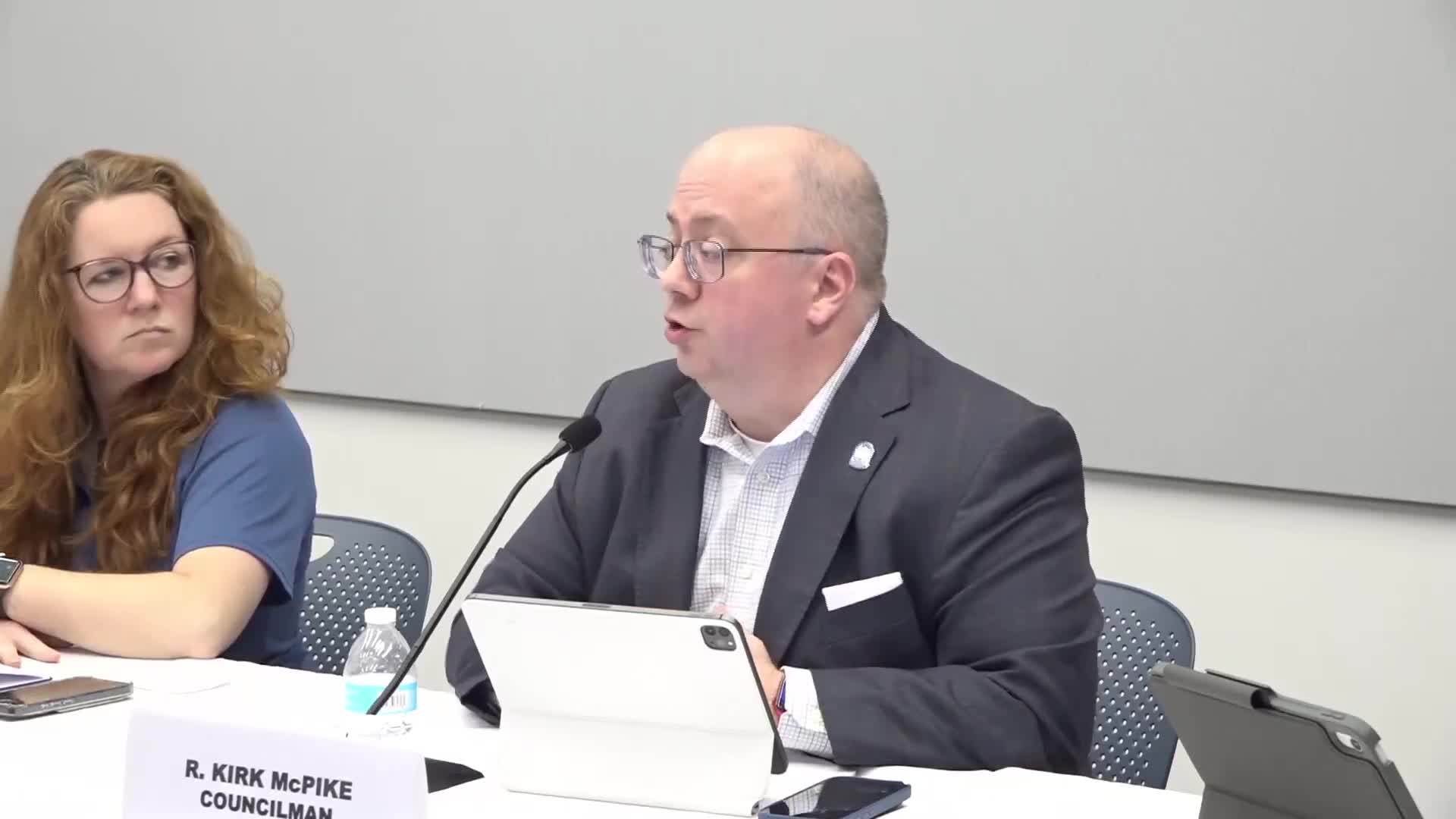Alexandria council stresses fiscal caution as schools, collective bargaining and budget cuts dominate town hall
Get AI-powered insights, summaries, and transcripts
Subscribe
Summary
Council members described a tight FY‑26 budget that increases the city transfer to schools but also includes across‑the‑board cuts, contingency planning for potential federal grant losses, and noted collective bargaining as a planned near‑term cost pressure; officials said fund balance rules and bond ratings limit one‑time spending.
Alexandria council members told residents at a town hall that the city faces a constrained budget year and is balancing near‑term pressures on schools, collective bargaining obligations and the risk of federal grant reductions.
Council speakers said the city manager’s proposed budget increases the city’s transfer to Alexandria City Public Schools (ACPS) and that the manager asked departments to hold growth to 2% and identify 1% in cuts. Council members described $6 million in cuts in the current budget cycle and referred to larger multiyear reductions.
“We are in the process of the budget right now,” one council member said, noting weekly meetings and that “there is always a desire to do more for the young people in our city.” Another described the budget as “tight” and flagged potential economic impacts from proposed federal personnel cuts that could affect local sales and meals taxes.
Council members stressed limits on using fund balance. A speaker explained that fund balance is not a recurring revenue source and that using it for ongoing personnel costs would be fiscally imprudent because bond rating agencies look at adherence to fund balance policies. “Taking our credit rating down one notch … would cost the city $32,000,000 over the next 10 years in increased interest payments,” a council member said when explaining why the city must keep a designated reserve.
Collective bargaining and employee compensation also drew sustained attention. Several council members said they support collective bargaining to provide predictable multi‑year contracts and to improve recruitment and retention for police, fire and other city workers. Council members noted that collective bargaining agreements have helped stabilize staffing and morale in public safety departments.
Residents asked whether savings from shared services — an example raised repeatedly was potential savings if students rode DASH buses instead of dedicated school buses — would be directed back to ACPS. Council members described the DASH idea as part of a broader effort to find shared services, and said any realized savings would be considered in future budget discussions.
Several council members described an uncertain revenue outlook if federal grants are cut; the council said staff monitors federal developments and that emergency reserves were included in the proposed budget. Officials also said the city can reopen the budget later in the fiscal year to make midyear adjustments if necessary.
Ending: Council members emphasized that the budget process will continue through the council’s amendment period and public hearings, and that community input will be considered as council finalizes FY‑26 funding levels.
